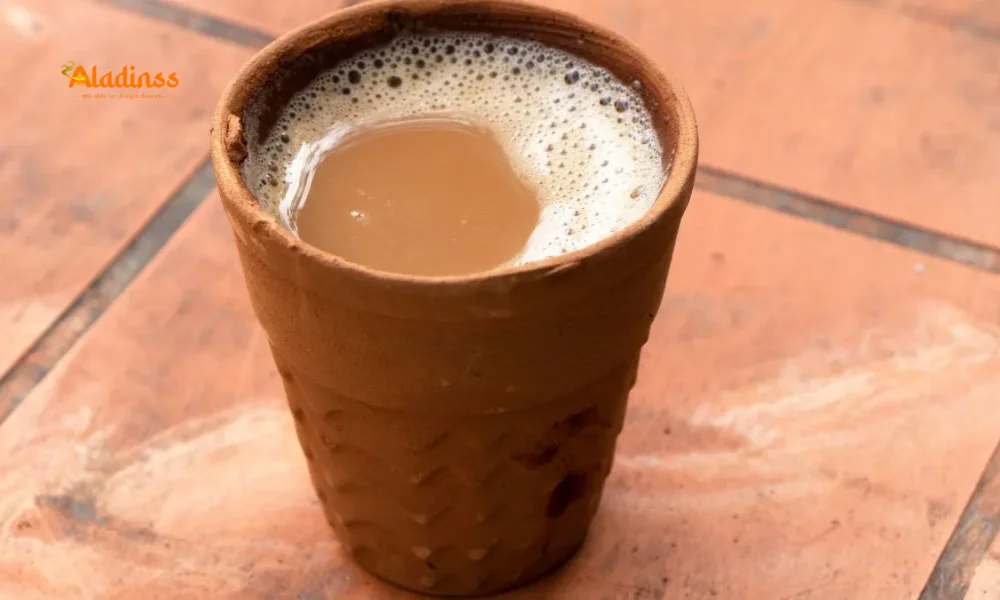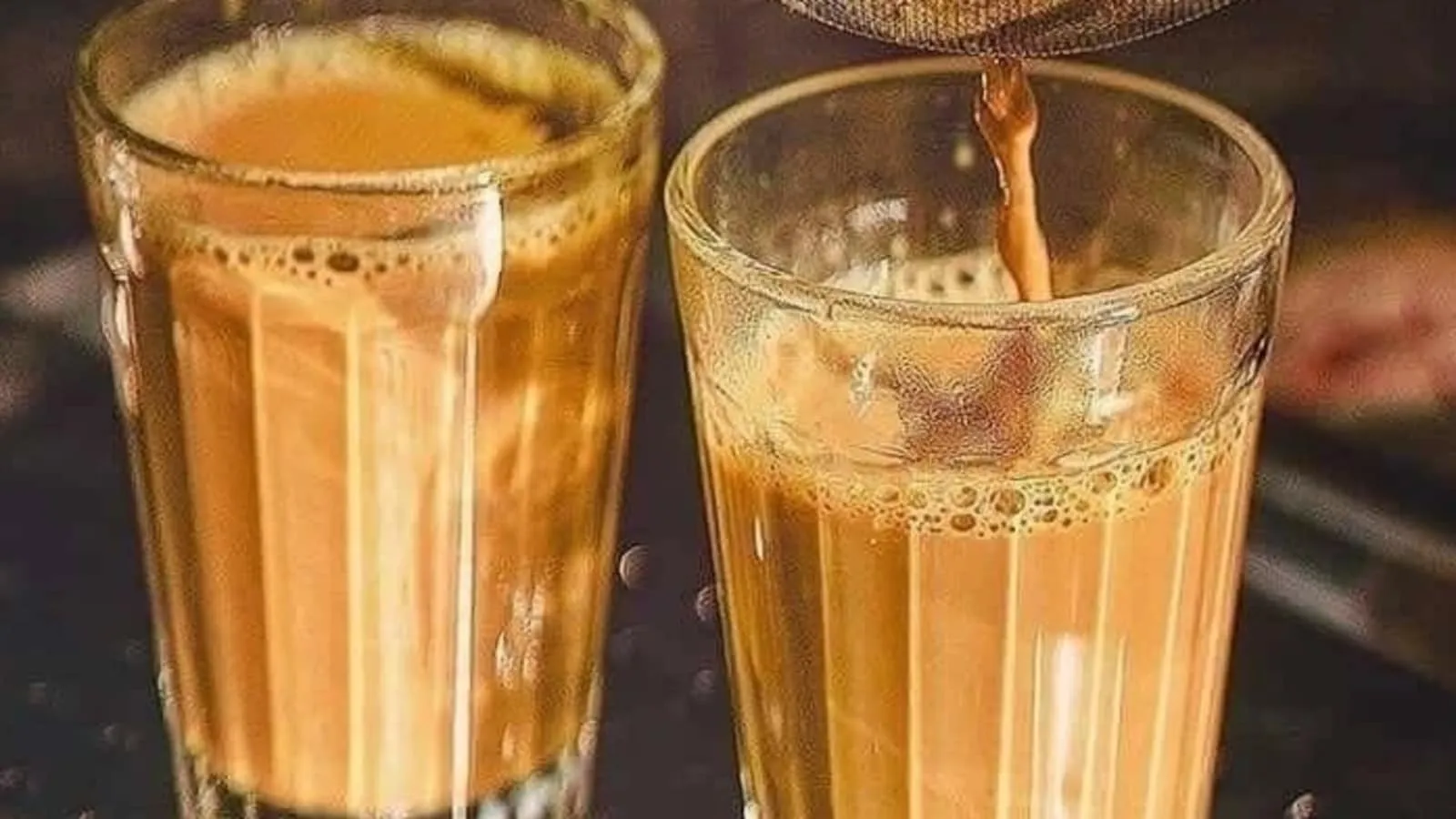How Much Tea Should You Drink Daily? Expert Tips for Tea Lovers

How Much Tea Should You Drink Daily? Expert Tips for Tea Lovers
Tea is more than just a beverage in India—it’s a cultural cornerstone, symbolizing warmth, hospitality, and togetherness. From morning chai to evening gatherings, tea is a daily ritual in countless households. However, for those sipping multiple cups a day, it’s time to rethink this habit. Renowned nutritionist Rujuta Diwekar emphasizes moderation to maximize tea’s benefits while avoiding potential health risks. This article explores how much tea you should drink daily, healthy tea-time practices, and smart snack choices to enhance your tea experience, tailored for Indian tea lovers in 2025.

Tea’s Role in Indian Culture
In India, tea is a way of life. Whether it’s masala chai infused with cardamom, cloves, and ginger or a simple cup of black tea, it’s a staple in homes across the country. From bustling cities like Mumbai to rural villages, tea brings people together, fostering conversations and connections. Its affordability—starting at ₹100-₹300 for a 250-gram pack—makes it accessible to all. However, the love for tea often leads to overconsumption, with some drinking 5-6 cups daily, which can have unintended health consequences.
Tea offers benefits like antioxidants and a mild energy boost from caffeine, but excessive intake can lead to issues like acidity, sleep disturbances, or nutrient deficiencies. Nutritionist Rujuta Diwekar, in a recent interview, highlighted the need for balance to ensure tea remains a healthy part of daily life. By adopting mindful habits, tea lovers can enjoy their favorite drink without compromising well-being.
How Much Tea Is Too Much?
Rujuta Diwekar recommends limiting tea consumption to 2-3 cups per day for most adults. This guideline applies to black tea, green tea, or masala chai commonly consumed in India. Each cup, typically 150-200 ml, provides a moderate caffeine intake (20-60 mg per cup) and antioxidants like catechins without overloading the body. Exceeding this limit can lead to side effects like increased acidity, dehydration, or disrupted sleep patterns, especially in those with sensitive stomachs or sleep issues.
In India, where tea is often paired with milk and sugar, excessive consumption can also contribute to calorie overload or blood sugar spikes. For example, a cup of sugary chai can add 50-100 calories, which accumulates over multiple servings. By sticking to 2-3 cups, you enjoy tea’s social and health benefits while minimizing risks, making it a sustainable part of your daily routine.
Timing Your Tea Intake
When you drink tea matters as much as how much you drink. Diwekar advises avoiding tea after 4 PM to prevent sleep disruptions, as caffeine can interfere with melatonin production, affecting sleep quality. In India, where late-night tea sessions are common during social gatherings or work hours, this habit can lead to restless nights, especially for those with insomnia or stress.
Instead, enjoy tea in the morning or early afternoon to align with your body’s natural rhythm. For instance, a cup at breakfast or mid-morning can provide a gentle energy boost. Avoid drinking tea on an empty stomach, as it may cause acidity or discomfort. Pairing tea with a small, healthy snack can further enhance its benefits, making it a nourishing part of your day.
Avoid Replacing Meals with Tea
A common habit in India is sipping tea instead of eating a proper meal, especially during busy workdays or evening snacks. Diwekar warns that this practice can lead to nutritional deficiencies, as tea lacks the essential nutrients needed for a balanced diet. Relying on tea to curb hunger may also cause overeating later due to unbalanced blood sugar levels.
To break this cycle, ensure tea complements rather than replaces meals. For example, pair your morning tea with a nutrient-dense breakfast like poha or upma, which use affordable ingredients like flattened rice or semolina. This approach maintains energy levels and supports overall health, keeping your tea habit in check.
Healthy Tea-Time Snacks
Tea time in India often includes fried snacks like nankhatai biscuits, rusks, namkeen, or kachoris, which are high in unhealthy fats and low in nutrients. Diwekar suggests swapping these for healthier options like roasted makhanas (fox nuts) or black chana. These snacks are affordable, nutrient-rich, and widely available in Indian markets, enhancing your tea experience without compromising health.
Roasted makhanas, for instance, are light, high in fiber, and cost-effective, while black chana provides protein and iron. These options support a balanced diet and prevent the energy crashes associated with sugary or fried snacks. Preparing homemade snacks in bulk can further reduce costs, making tea time both enjoyable and nutritious.
Choosing the Right Tea
The type of tea you choose impacts its health effects. In India, masala chai with milk and sugar is popular, but excessive sugar can negate tea’s benefits. Opt for lightly sweetened or unsweetened teas to keep calorie intake low. Green tea or herbal blends like tulsi tea are also great options, offering antioxidants without the need for additives.
When preparing tea, use fresh spices like ginger or cardamom to enhance flavor naturally. These ingredients, common in Indian kitchens, add health benefits like improved digestion. Buying tea leaves or bags from local vendors ensures quality and affordability, with prices starting at ₹100 for a month’s supply.
Balancing Tea with Hydration
While tea contributes to hydration, overconsumption can have a diuretic effect due to caffeine, potentially leading to dehydration. In India’s hot climate, maintaining hydration is crucial. Balance tea intake with plenty of water or hydrating drinks like buttermilk or coconut water, which are affordable and widely available.
Aim for 2-3 liters of water daily alongside your 2-3 cups of tea. This ensures your body stays hydrated, supporting digestion and overall health. For tea lovers, this balance allows you to enjoy your favorite drink without straining your system, especially during humid months.
Tea and Lifestyle: A Holistic Approach
Tea drinking in India is often tied to lifestyle habits, from morning rituals to social gatherings. To make it a healthy habit, pair tea with a balanced lifestyle. Regular exercise, like walking or yoga, complements tea’s energy-boosting effects. A nutrient-rich diet with whole foods like grains, lentils, and vegetables ensures tea doesn’t replace essential meals.
In India, where stress and busy schedules are common, tea can be a moment of calm. Use tea time to relax and connect, but keep portions and timing in check. This holistic approach ensures tea remains a joyful, health-supporting part of your day without negative effects.
Why Moderation Matters for Tea Lovers
India’s love for tea is unmatched, but moderation is key to reaping its benefits. Overconsumption can lead to health issues like acidity, sleep problems, or nutrient imbalances, particularly in a country where tea is a daily staple. By following Diwekar’s advice—limiting intake to 2-3 cups, timing it wisely, and pairing it with healthy snacks—you can enjoy tea’s cultural and health benefits without drawbacks.
As India embraces healthier lifestyles in 2025, mindful tea drinking can enhance well-being. Whether you’re in a bustling city or a quiet village, these tips make it easy to balance tradition with health, ensuring every cup of tea is a moment of joy and nourishment.
Comment / Reply From
No comments yet. Be the first to comment!






